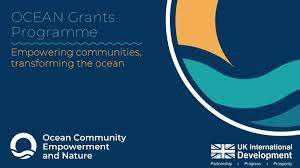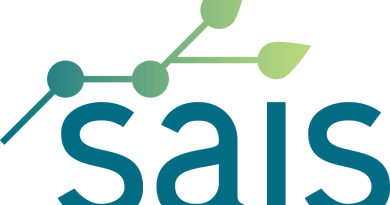OCEAN Grants Programme call for applications (£250,000 to £3 million grants)
The OCEAN Grants Programme, under the Blue Planet Fund, is currently accepting applications for projects that aim to bring about long-lasting change to the marine environment and coastal communities.
The Blue Planet Fund, a £500 million initiative by the UK government, is dedicated to supporting developing countries in their efforts to protect the ocean and reduce poverty. It is jointly managed by the Department for Environment, Food and Rural Affairs (Defra) and the Foreign, Commonwealth and Development Office (FCDO).
OCEAN is committed to supporting organizations of all sizes that are working towards ocean-based solutions to address climate change. By doing so, OCEAN aims to enhance the resilience of coastal communities that are most affected by the deteriorating health of the ocean and the impacts of climate change.
There are two types of grants available:
1. Community Grants: These grants, with a maximum allocation of £250,000, are intended for small-scale, local organizations within the country. The focus of these grants should be on empowering local communities to address marine and poverty-related issues by implementing local solutions.
2. Partnership Grants: Medium to large organizations with the capacity to implement solutions at scale can apply for these grants, which range from £250,000 to £3 million. The emphasis of these grants should be on collaborating with and working alongside local communities to deliver local solutions while considering the potential for scalability.
The duration of both Community Grants and Partnership Grants can range from a minimum of one year to a maximum of 31 March 2029.
The intended impact of OCEAN is to enable communities to access funding and develop the capacity to establish and effectively manage marine protected areas and other conservation measures. This includes promoting sustainability, effectiveness, and inclusivity in the implementation and management of these initiatives.
Illegal, unreported, and unregulated fishing activities can be effectively monitored, prevented, and prohibited by providing support to communities that were previously dependent on these practices through alternative, stable, and sustainable livelihoods. This will help in managing regional and national fisheries and aquaculture to ensure sustainable fish stocks and healthy marine ecosystems, while also providing inclusive livelihoods and reducing overfishing. Additionally, communities will be empowered with increased capacity to manage marine pollution and prevent its entry into the marine environment by targeting pathways from land to sea.
Examples of activities that can be included in such projects are training artisanal fishers in collecting data on illegal, unregulated, and unreported fishing to develop community-led networks for reporting such activities. Capacity building projects can also be undertaken to train in-country experts in conducting fishery assessments and implementing improvements based on data. Community training workshops can be organized to promote sustainable marine management practices and enhance productivity and yields of ecosystems. Furthermore, establishing no-take zones and biodiversity monitoring programs can contribute to the conservation of marine biodiversity. It is also important to establish and train staff in environmental management and information systems. Waste collection, sorting, and disposal systems can be set up in local communities to address marine pollution. Lastly, support can be provided to women, youth, and disabled individuals to develop income generation and livelihood opportunities through integrated waste management.
There are two types of projects that can be considered for funding:
1. Community Grant: This grant should aim to reduce multi-dimensional poverty and focus on the marine environment. While it is not mandatory, the project can align with one of the Blue Planet Fund’s seven key outcomes. The annual value of the grant should not exceed 50% of the Lead Organisation’s annual income. The project should emphasize the development of new ideas, local solutions to local problems, capacity building, and community empowerment. It is crucial for the project to demonstrate a good understanding of the context in which it will be implemented.
2. Partnership Grants: Similar to the Community Grant, this grant should also contribute to reducing multi-dimensional poverty. It should prioritize the marine environment as well.
Poverty alleviation efforts should prioritize the marine environment. While it is not mandatory, this focus can align with one of the Blue Planet Fund’s key outcomes. The annual value of the project should not exceed 50% of the Lead Organisation’s annual income. The project should emphasize the development of new ideas, local solutions to local problems, capacity building, and community empowerment. It is important for the project to demonstrate a good understanding of the context in which it will take place. Additionally, effective engagement and collaboration with the local communities it aims to support is crucial. The project should have the potential to scale, with established networks to deliver long-term outcomes for the marine environment and local organizations/communities.
OCEAN Grants Programme Eligibility Criteria:
Community Grants – Lead Organisation:
1. The Lead Organisation must be a small to medium-sized local, regional, or national organization based in the same country as the project.
2. The Lead Organisation’s annual income must be less than £1 million.
3. The Lead Organisation must be able to demonstrate its non-profit status.
Partner Organisation(s):
1. The Lead Organisation may choose to partner with one or more nonprofit organizations. Partnerships are encouraged but not mandatory.
2. The Partner Organisation can also be a private sector organization, a business, or a business association.
3. Government agencies and inter-governmental organizations can be Partner Organisations, but they may not receive funding.
Consultation with British embassies/high commissions:
Lead Organisations are encouraged to reach out to their nearest regional Foreign, Commonwealth & Development Office (FCDO) to discuss their project proposal.
OCEAN Grants Programme Proposal Requirements
Lead Organisation:
– Must be a well-established organization.
– Must have an annual income exceeding £1 million.
– Must collaborate with small and established organizations to develop partnerships at the local, regional, national, and/or international level.
– Must demonstrate its non-profit status, expertise in the proposed work, and possess the necessary technical and financial capacity to successfully manage and implement projects, as well as provide reporting.
Partner Organisation(s):
– The Lead Organisation must partner with at least one non-profit Partner Organisation based in the same country as the project.
– If the project spans multiple countries, a Partner Organisation from each project country is required.
– The Partner Organisation can also be a private sector organization, a business, or a business association.
– Government agencies and intergovernmental organizations can be Partner Organisations, but they are not eligible to receive funding.
Consultation with British Embassies/High Commissions:
– Lead Organisations must contact their nearest regional Foreign, Commonwealth & Development Office (FCDO) to discuss their project proposal.
Deadlines:
– Community Grants: March 18, 2024
– Partnership Grants: April 2, 2024
For further details, please visit OCEAN.




